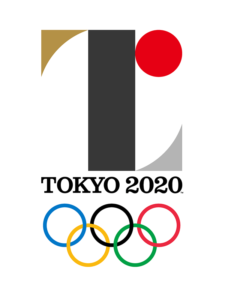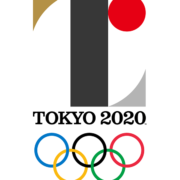IOC Approves Amateur Radio for Tokyo 2020 Olympic Games
 CQ CQ CQ de IOC: The Organising Committee for the Tokyo 2020 Games have approved new competitions to celebrate Amateur Radio.
CQ CQ CQ de IOC: The Organising Committee for the Tokyo 2020 Games have approved new competitions to celebrate Amateur Radio.
Tokyo 2020 President Yoshiro Mori said, “The inclusion of Amateur Radio will afford athletes the chance of a lifetime to realise their dreams of competing in the Olympic Games – the world’s greatest sporting stage – and inspire them to achieve their best, both in sport and in life.”
Throughout the history of amateur radio, amateur radio enthusiasts have made significant contributions to science, engineering, industry, and social services. Research by amateur radio operators has founded new industries, built economies, empowered nations, and saved lives in times of emergency.
Amateur radio is a hobby and, by law, completely non-commercial. Individual amateur “ham” radio operators pursue the avocation for personal pleasure through building their own radio stations and communicating with their fellows globally, and for self-improvement via study and practice of electronics, computers, and radio and TV wave behaviour.
Radio amateurs are, thus, “amateurs” in the true sense of the word: pursuit of an activity only for the love of it. Radio amateurs can not broadcast or transmit music and other general public entertainment programming. The amateur radio use of the air waves is for personal satisfaction and for forwarding the “state of the art” of electronics and communication techniques. Amateur radio operations can be detected in designated bands throughout the radio spectrum, using a variety of modulation methods including Morse code, voice and digital modes, and image modes such as television and facsimile.
The Amateur Radio competitions were inspired by the World Radiosport Team Championships (WRTC). WRTC2014, in Massachusetts, U.S.A., included 59 competing teams from 38 countries.
Described as the “ultimate International Field Day” by radio enthusiasts, new for the Tokyo 2020 Games are the following competitions within the Amateur Radio category in response to the new flexibility provided by Olympic Agenda 2020:
- Men’s 20-, 40-, 80-and 160-Meter Antenna Tuning
- Women’s 40-, 80-and 160-Meter Antenna Tuning
- Men’s Synchronized 10-Meter Tower Dive
- Men’s Freestyle Speed Keying
- Women’s Freestyle Speed Keying
- Women’s Uneven (Upper and Lower Sideband) Bars
- Women’s 10-Meter Dash-and-Dot
- Men’s 15-Meter Greco-Roman CW Sprint
- Men’s Synchronized PSK31 (Phase Shift Keying, 31 Baud)
- Women’s 15-Meter SSTV (Slow Scan Television)
- Mixed Doubles Earth-Moon-Earth (Moon Bounce)
- 10GHz-and-Up Team Dressage
- Men’s 6-Meter J-Pole Vault
- Women’s All-Around RTTY Roundup
- Women’s UHF/VHF/HF Triathlon
- Men’s UHF/VHF/HF Triathlon
IOC spokesman Sam Morse said, “The sky is the limit when it comes to Amateur Radio at the Olympic. Actually, with the Moon Bounce competition, even the heavens no longer hold our talented amateurs back. Tokyo 2020’s balanced proposal fulfils all of the goals of the Olympic Agenda 2020 recommendation that allowed it. These new competitions will add to the legacy of the Tokyo Games.”
Morse continued, “The inclusion of the package of new sports will afford young athletes the chance of a lifetime to realise their dreams of competing in the Olympic Games – the world’s greatest sporting stage – and inspire them to achieve their best, both in sport and in life. We thank the amateurs who shall soon begin qualifying for the Tokyo games by wishing them the IOC’s ’73.’ ”
###
The International Olympic Committee is a not-for-profit independent international organisation made up of volunteers, which is committed to building a better world through sport. It redistributes more than 90 per cent of its income to the wider sporting movement, which means that every day the equivalent of USD 3.25 million goes to help athletes and sports organisations at all levels around the world.



